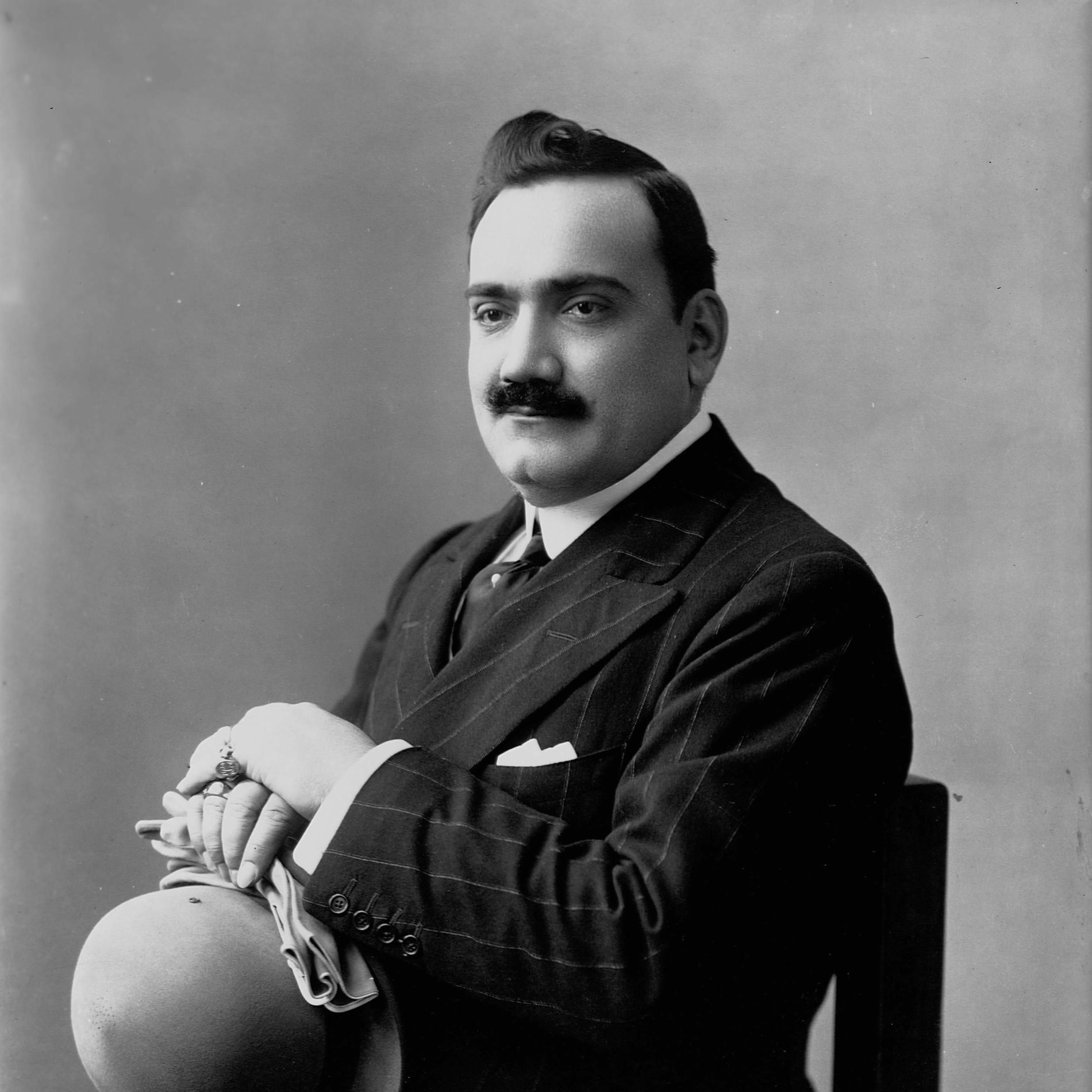Enrico Caruso — Music Videos
Play All Enrico Caruso tracks
Signature Style
Enrico Caruso, an Italian tenor whose voice became synonymous with the golden age of opera, was renowned for his powerful and emotive singing style. His voice, described as both robust and lyrical, was capable of conveying deep emotion, making him a favorite among opera enthusiasts. Caruso's ability to blend the dramatic intensity of his performances with technical precision set him apart from his contemporaries. His repertoire primarily consisted of Italian operas, with standout roles in works by composers like Giuseppe Verdi and Giacomo Puccini. Caruso's interpretations of characters such as Canio in "Pagliacci" and Radamès in "Aida" remain influential benchmarks for tenors worldwide. His recordings, made during the early 20th century, were among the first to capture the grandeur of operatic performance, thereby solidifying his legacy as a pioneer in bringing opera to the masses through the medium of recorded sound.
Career Highlights
Caruso's career was marked by numerous milestones that showcased his extraordinary talent and wide appeal. He made his professional debut in 1895 and quickly rose to prominence, performing in major opera houses across Europe. His breakthrough came in 1903 when he debuted at the Metropolitan Opera in New York City, where he would perform for 18 consecutive seasons. This engagement solidified his status as a leading tenor of his time. Among his most celebrated performances was the role of Dick Johnson in Puccini's "La Fanciulla del West," which premiered at the Met in 1910. Caruso's collaboration with legendary conductor Arturo Toscanini was another highlight, as their performances were celebrated for their passion and precision. His recordings, including the iconic "Vesti la giubba" from "Pagliacci," became bestsellers and introduced his voice to a global audience, further cementing his reputation as a superstar of the opera world.
Cultural Impact & Legacy
Caruso's impact on the world of music and culture is profound and enduring. As one of the first international recording stars, he played a pivotal role in the popularization of opera beyond the traditional theater settings, making it accessible to a wider audience through phonograph records. His recordings were instrumental in setting the standard for vocal excellence and paved the way for future generations of opera singers. Caruso's influence extended beyond music; he became a cultural icon of the early 20th century, embodying the glamour and sophistication of the opera world. His life and career have been the subject of numerous biographies and films, ensuring that his legacy continues to inspire and captivate audiences. The tenor's contribution to the arts was recognized posthumously with a Grammy Lifetime Achievement Award in 1987, underscoring his enduring influence on the music industry. Caruso's pioneering spirit and exceptional artistry remain a benchmark for vocalists and a cherished part of opera's rich history.
Other Artists
Discover more voices we think you'll enjoy right now.
